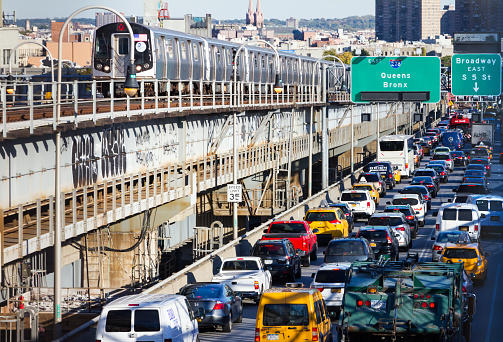In 2016, New York governor Andrew Cuomo shared an initiative to “Reimagine New York’s Crossings,” which included installing advanced cameras, license plate readers, and facial recognition technology.
The plan began to raise concerns amongst advocacy groups. New York Civil Liberties Union senior staff attorney, Mariko Hirose, described it as being one step closer to a “dystopian world.” New York City, however, carried on with the plans.
Now, a Metropolitan Transportation Authority (MTA) email obtained by The Wall Street Journal shows a 2018 technology test on NYC’s Robert F. Kennedy Bridge was a complete bust.
On Nov. 29, the journal reported that an MTA official emailed a senior staffer in Cuomo’s administration, saying the “initial period for the proof of concept testing at the RFK for facial recognition has been completed and failed with no faces (0%) being detected within acceptable parameters.”
Despite the program’s failures, the same email stated a second hard drive containing images of drivers had been sent out for analysis. In addition, more cameras were being obtained to expand the program.
According to the the Journal, a spokesperson for the MTA said that the pilot program is continuing at the bridge and both tunnels. It is also running at the Throgs Neck and Bronx-Whitestone bridges.
The program’s failure shouldn’t come as a surprise because facial recognition programs continue to struggle with still subjects. Recently, researchers even called on Amazon to stop selling its Rekognition system to police, citing a study that found it couldn’t identify darker-skinned women.
What’s alarming about NYC’s program is how officials continue to flip flop between its intended purposes. In July 2018, Cuomo said cameras at tolls read license plates for scofflaws — like people dodging the toll — and “warrants, suspected felons, parole violators, terrorist suspects,” according to the New York Post.
New York City is already full of government surveillance programs, many of them launching post 9/11 to target Muslim communities. The development of facial recognition surveillance that government officials say is useful is to “identify and track terrorists” — according to the WSJ — should be concerning.
The New York Civil Liberties Union’s privacy and technology strategist, Daniel Schwarz, told Gizmodo, “This latest news validates our concerns that this technology is invasive and inaccurate—and the government has no justification for using it to undermine the privacy of our daily commutes. Facial recognition technology vastly expands the government’s capacity for intrusive, real-time surveillance.”
For privacy advocates and community members, the solution isn’t to advocate for better technology. Instead, it should question if this program even needs to exist.

